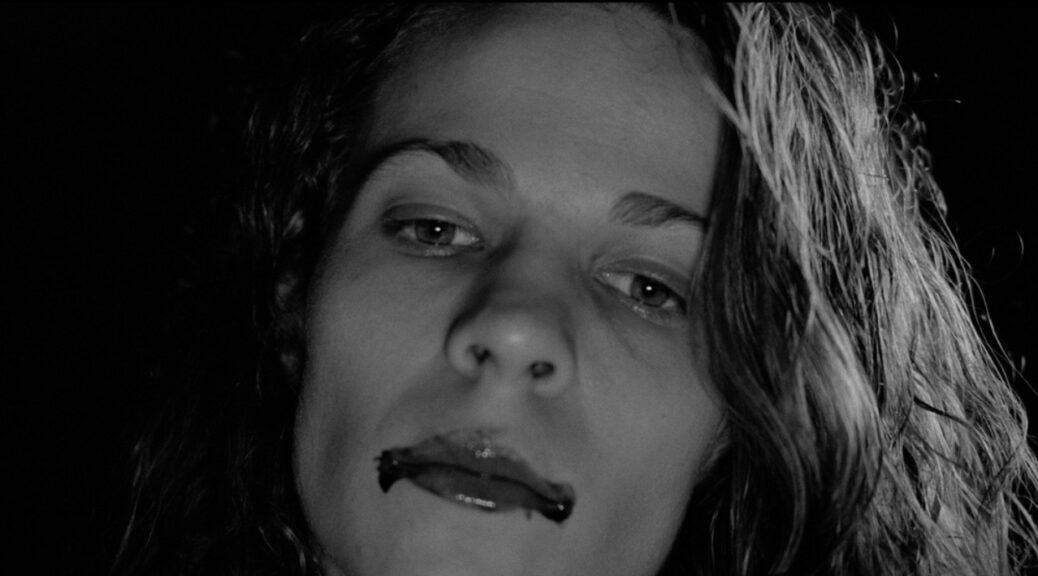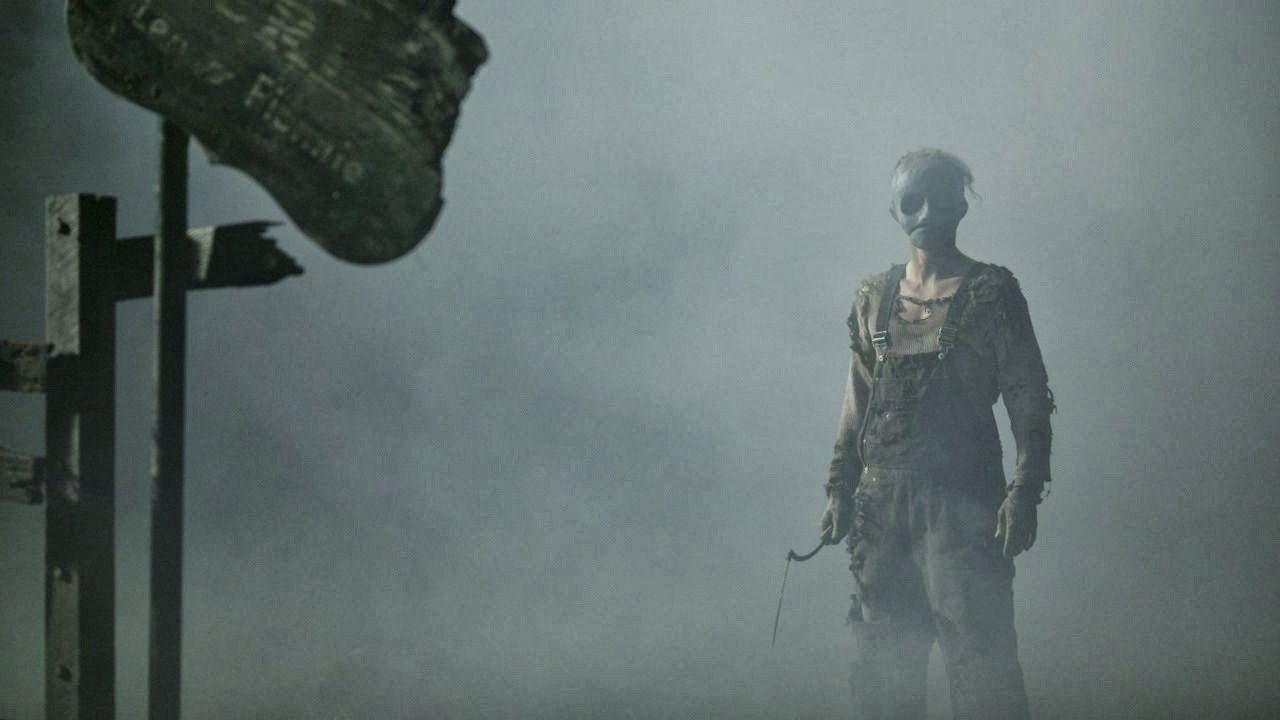Addiction is its own horror story, which may explain why so many filmmakers use monstrous imagery as metaphor for addiction. We count down the best horror films that use addiction to freak you out.
5. Enter the Void (2009)
Gaspar Noe films from the point of view of Oscar, an American who deals drugs in Tokyo. When Oscar is shot in a police raid, the camera follows his subconscious as Noe tries to illustrate a nightmarish link between drugs and death.
Noe’s trademarks – jarring opening credits, roller coaster camerawork, extended takes – are all here, and the result is a nearly two-and-a-half hour barrage of extreme violence, graphic sex, drug-fueled hallucinations and an often hypnotizing gloom that may leave you feeling physically beaten. It’s an experience. But like most of Noe’s work, it’s also hard to turn away from, even if you want to.
4. Habit (1995)
Writer/director/star Larry Fessenden explores alcoholism via vampire symbolism in this NY indie. Fessenden plays Sam, a longtime drunk bohemian type in the city. He’s recently lost his father, his longtime girlfriend finally cut bait, and he runs into a woman who is undoubtedly out of his league at a party.
And then he wakes up naked and bleeding in a park.
The whole film works beautifully as an analogy for alcoholism without crumbling under the weight of metaphor. Fessenden crafts a wise, sad vampiric tale here and also shines as its lead.
3. The Addiction (1995)
Like most of director Abel Ferrara’s work, the film is an overtly stylish, rhythmically urban tale of brutal violence, sin and redemption (maybe). Expect drug use, weighty speeches and blood in this tale of a doctoral candidate in philosophy (Lili Taylor) over-thinking her transformation from student to predator.
Taylor cuts an interesting figure as Kathleen, a very grunge-era vampire in her jeans, Doc Martens and oversized, thrift store blazer. She’s joined by an altogether awesome cast—Annabella Sciorra, Edie Falco and Christopher Walken among them.
Ferrara parallels Kathleen’s need for blood to drug addiction, but uses her philosophy jibberish to plumb humanity’s historical bloodlust.
2. Evil Dead (2013)
With the helpful pen of Oscar winner Diablo Cody (uncredited), Fede Alvarez turns all the particulars of the Evil Dead franchise on end. You can tick off so many familiar characters, moments and bits of dialog, but you can’t predict what will happen.
One of the best revisions is the character of Mia: the first to go and yet the sole survivor. An addict secluded in this cabin in the woods with her brother and friend specifically to detox, she’s the damaged one, and the female who’s there without a male counterpart, which means (by horror standards), she’s the one most likely to be a number in the body count, but because of what she has endured in her life she’s able to make seriously tough decisions to survive – like tearing off her own damn arm. Nice!
Plus, it rains blood! How awesome is that?!
1. Resolution (2012)
Michael (Chris Cilella) is lured to a remote cabin, hoping to save his friend Chris (Vinny Curan) from himself. Chris will detox whether he wants to or not, then Michael will wash his hands of this situation and start again with his wife and unborn baby.
But Michael is in for more than he bargained, and not only because Chris has no interest in detoxing. Directors Aaron Moorhead and Justin Benson (working from Benson’s screenplay) begin with a fascinating and bizarre group of characters and a solid story, layering on bizarre notions of time, horror and storytelling in ways that are simultaneously familiar and wildly unique. The result is funny, tense, and terrifying.

